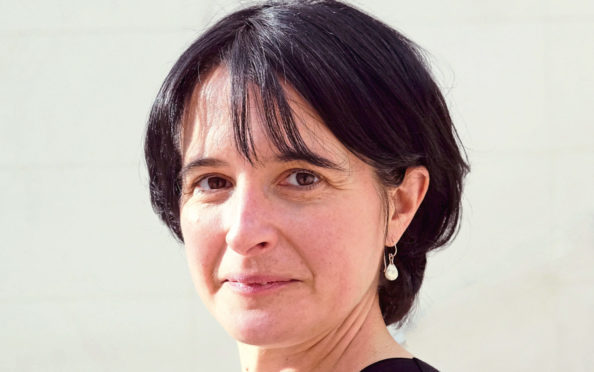
Glasgow-born author Sarah Moss’s seventh novel Summerwater sprang out of a rain-soaked holiday on a lochside chalet park in The Trossachs.
“I don’t name the location exactly but I think Scottish readers will know where it is,” she tells P.S. “It is a place I have been back to all my life. I wanted to go back to various Scottish places and share them with my children and one of them was The Trossachs.
“I have taken them before but they were much younger. So we did go back recently, but it rained really hard for the entire holiday.
“I kept thinking someone should write a novel and wondering why there weren’t more set on campsites and caravan and holiday parks. It was an obvious thing to do.”
Sarah, a runner, recently moved to Ireland where she teaches creative writing at the University of Dublin. She penned Summerwater before the Covid-19 outbreak but she admits the book, which opens with a mum jogging in the deluge as her husband and kids sleep, raises questions pertinent to the pandemic.
The plot unfolds over the course of one bleak day, when a partying family cause tensions on site to rise. “Something bad happens,” the author reveals.
“What fascinated me was all these different people being forced into a relationship with each other. On a campsite or a caravan park, you are sort of forced into neighbourhood.
“I was thinking quite a lot about neighbours, because during the pandemic neighbours became important in a way they hadn’t before.
“The question is, if your neighbours have a loud party, do you take a bottle, go round and join in or do you react with rage? My natural instinct is rage. I like to get up early and run a long way and I have a life that requires a certain amount of peace and quiet.
“But I began to think a bit more about the politics of that; what is it about other people having fun that makes you angry? During lockdown that question acquired a particular depth. One of the book’s questions is exactly that.
“But I changed my own response. I began to think how nice it is to hear people having fun with others instead of lying awake thinking ‘I can’t bear this noise’.”
It is not the first time that the country of Moss’s birth has made its way into her work, which has been repeatedly shortlisted for the Wellcome Book Prize as well as being longlisted for the 2019 Women’s Prize (Ghostwall).
She says: “Scotland informs my books quite a lot. We always had relatives in Glasgow on my father’s side, so we came back to visit from time to time.
“My mother claims I learned to walk on the shores of Loch Lomond and I learned to swim there.
“I was photographed in a newspaper in the loch in 1976 – the year after I was born.”
Sarah, who should have been at this summer’s Edinburgh International Book Festival – one of the many Covid cancellations – does not recommend “emigrating in the middle of a pandemic” to Dun Laoghaire, but loves her new “European life by the sea”.
Still, she confesses: “I would have loved to come back to Scotland. But there weren’t any jobs of the right dimensions at the right time.
“I am very happy to be in Ireland but I would be happy to live in Scotland at some point.”
Sarah Moss – Summerwater, Picador, £14.99

Enjoy the convenience of having The Sunday Post delivered as a digital ePaper straight to your smartphone, tablet or computer.
Subscribe for only £5.49 a month and enjoy all the benefits of the printed paper as a digital replica.
Subscribe